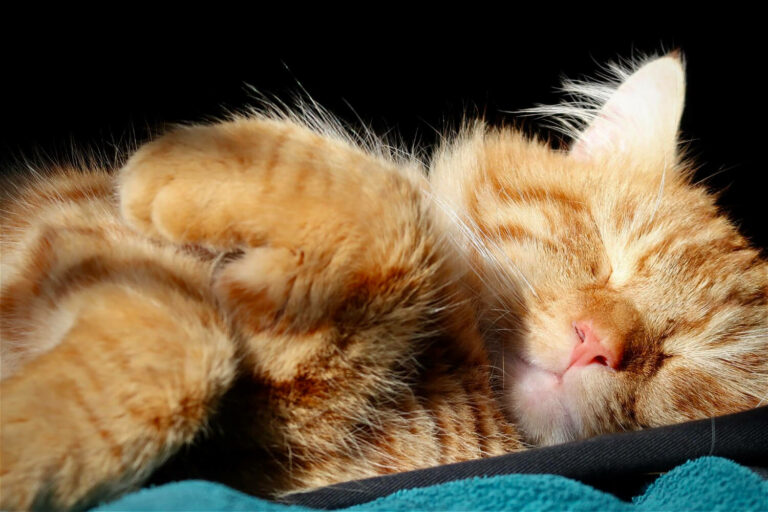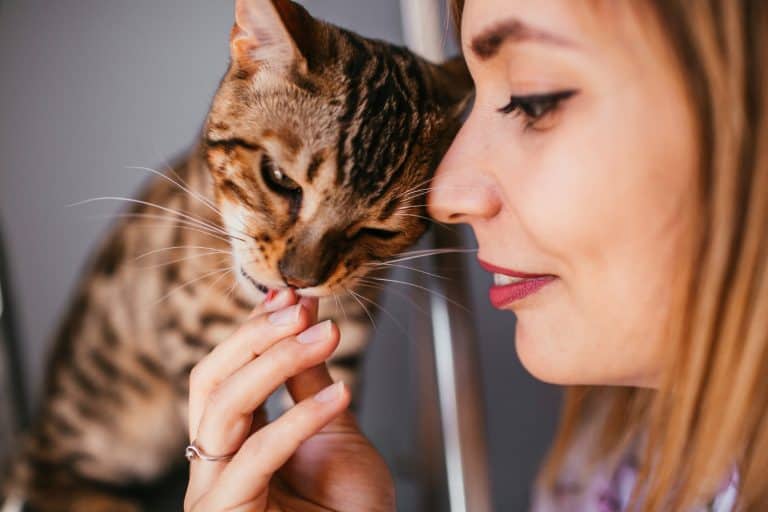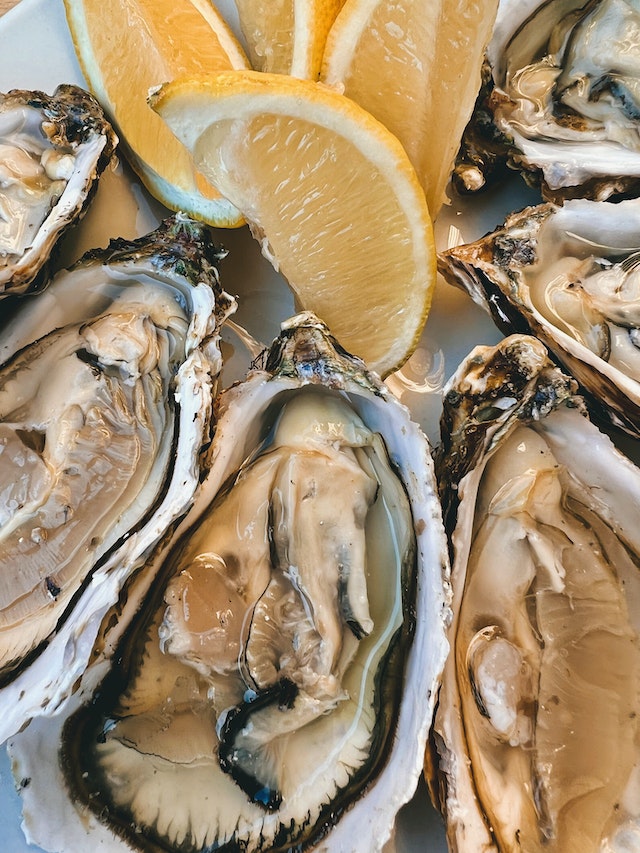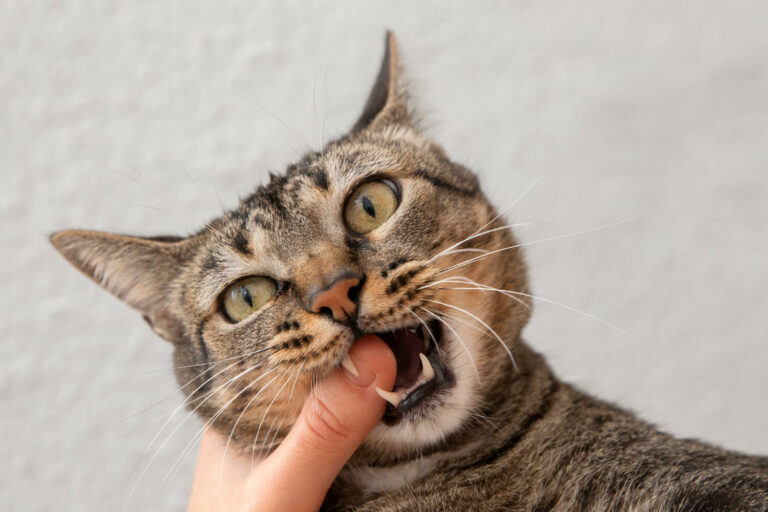Are Sesame Seeds Bad for Cats? Benefits and Risks You Need to Know
We have all been bullied by our cats into giving them our food, but what if your food has sesame seeds on top? Are sesame seeds bad for cats?
Table of Contents
What are the benefits of sesame seeds for cats?
There are a few benefits of sesame seeds for cats. They are a good source of fiber, which can help with digestion.
Additionally, they contain essential fatty acids, minerals (including magnesium and zinc), and vitamins (especially vitamin E).
Sesame seeds also have anti-inflammatory properties.
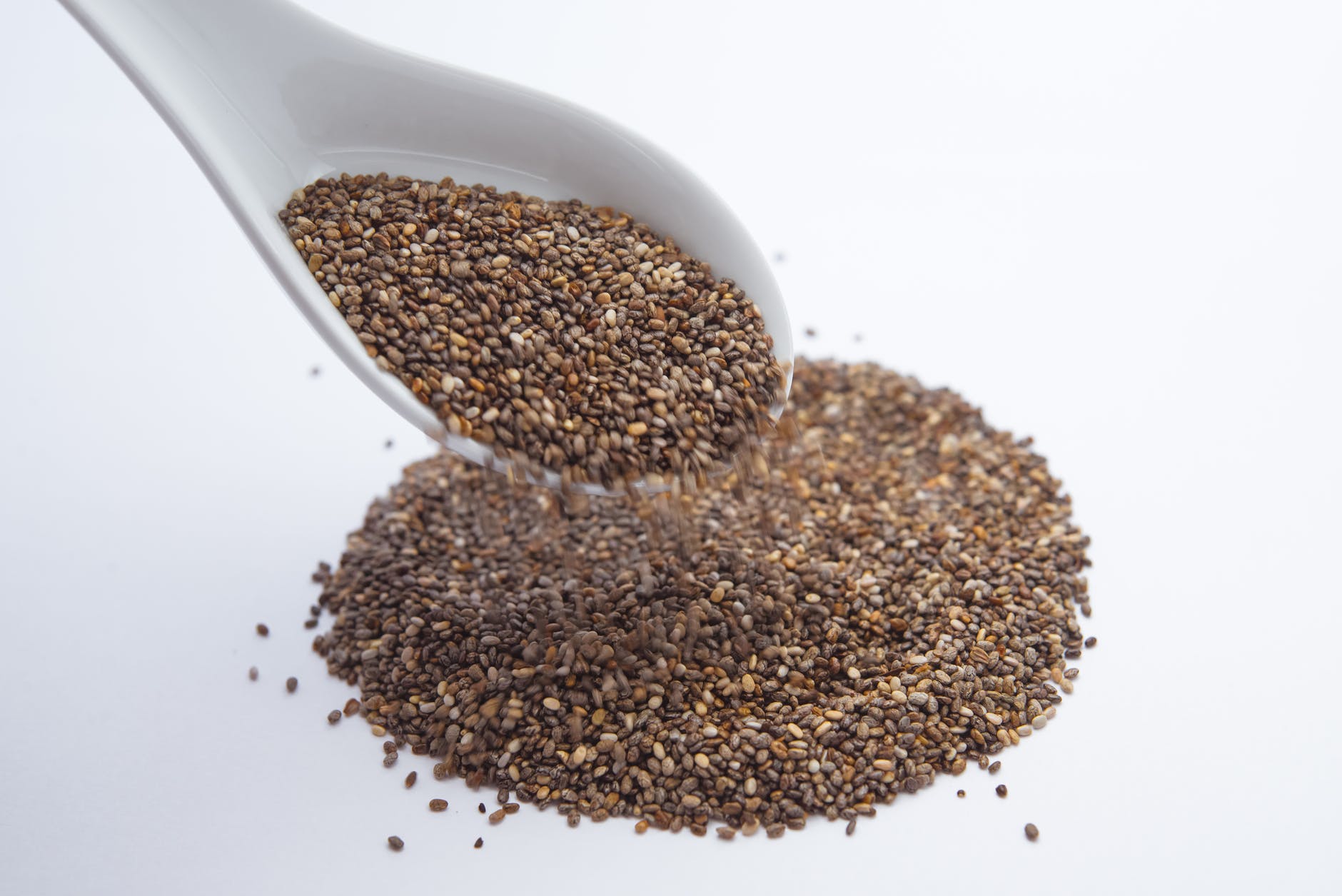
Are sesame seeds bad for cats?
When it comes to feeding sesame seeds to cats, there are a few things you need to keep in mind.
First of all, sesame seeds are packed densely and have a hull, which can make them difficult for the cat’s digestive system to process.
Additionally, the cooking process can remove many of the nutrients in sesame seeds.
Sesame powder is a better option than whole sesame seeds because it is easier for cats to digest. However, this also has a downside in terms of mold and bacteria growth.
Another thing to remember is that cats can benefit from sesame seeds in terms of nutrition and health. But only if they are fed in moderation.
Too many of these tiny seeds can cause gastrointestinal problems for cats.
That said, if you are careful about how much you feed your cat and avoid exposing her to any other harmful substances, then she should be fine eating sesame sticks.
Just be sure to keep an eye on her diet and consult your veterinarian if you have any concerns.
Can cats have sesame oil?
Yes, cats can have sesame oil. It’s important to keep in mind that while a little bit is safe, you shouldn’t give your cat too much sesame oil as it could make them sick.
Sesame seed oil is most commonly used to cook, but if your cat is curious about the taste you can also feed it to them.
Cats don’t need sesame seed oil and they should not be fed it on a regular basis.
However, there are some benefits to giving them this type of oil. Cats do gain some nutrition from eating sesame seed oil in the first place.
Is it okay to feed raw sesame seeds to cats?
There is a lot of debate surrounding the topic of feeding raw sesame seeds to cats. Some people say that it’s okay to do so, while others believe that it’s not a good idea. The bottom line is that it’s up to each pet owner to decide what’s best for their individual animal(s).
Sesame seeds should be fed very sparingly and in small quantities, possibly mixed in with wet food.
Roasting sesame seeds or boiling them makes it easier for cats to digest. You should use sesame powder instead of sesame seeds.
However, cats can eat any form of sesame. This is as long as it’s free of sugar, salt, or anything else which might be disagreeable to your cat.
It’s a personal decision for each pet owner whether they feed their cat raw sesame seeds or not. It’s up to you and the individual animal(s).
If you choose to give your cat this type of snack, just make sure that you’re keeping an eye on them and monitoring their diet closely.
Remember that too much of anything can be harmful, so don’t go overboard with the number of raw sesame seeds that your cat consumes!
How much sesame oil is safe for cats?
Sesame oil is generally safe for cats, but you should only give them a small amount at a time. A drop or two twice daily is good for small cats and may help to reduce indigestion and renew a coat.
You should only use sesame seed oil in moderation, as it is one of the main uses for sesame seeds. Cats do not need sesame seed oil on a regular basis.
There is no documented harm from eating large amounts, so it is safe to feed your cat small amounts at a time.
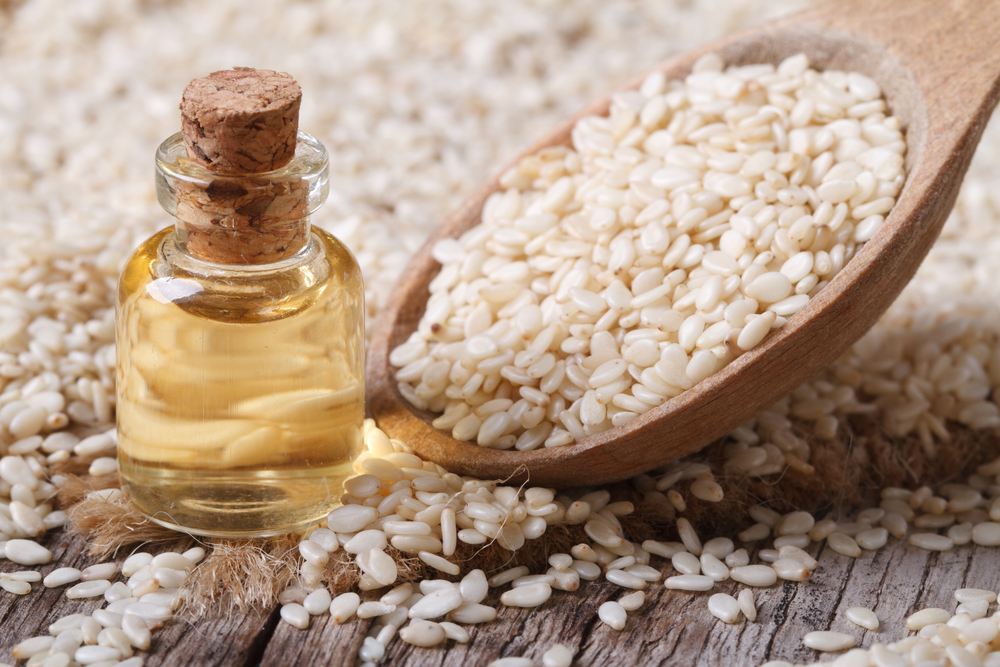
What are the side effects of consuming too much sesame oil for cats?
Sesame oil is a popular ingredient in many cat foods. However, it’s important to remember that cats should only consume sesame oil in moderation.
Excessive amounts of sesame oil can have harmful side effects for cats, including:
- Weight gain
- Diarrhea
- Vomiting
- Dehydration
If your cat consumes too much sesame oil, be sure to contact your veterinarian immediately.
Is it necessary to dehull or remove the outer layer of the seed before feeding them to cats?
The safest way to feed sesame seeds to your cat is rarely and in small amounts.
If you are going to give them more than a tiny amount, I would recommend boiling or roasting the seeds first so they will be softer for easier digestion.
The only drawback of too much sesame seed consumption is that it can lead to intestinal blockage, which could be fatal if left untreated.
Even with the outer layer removed, sesame seeds are still quite hard to digest for cats.
So unless you want your cat throwing up all over the place, I would recommend getting sesame powder which is free of sugar and salt.
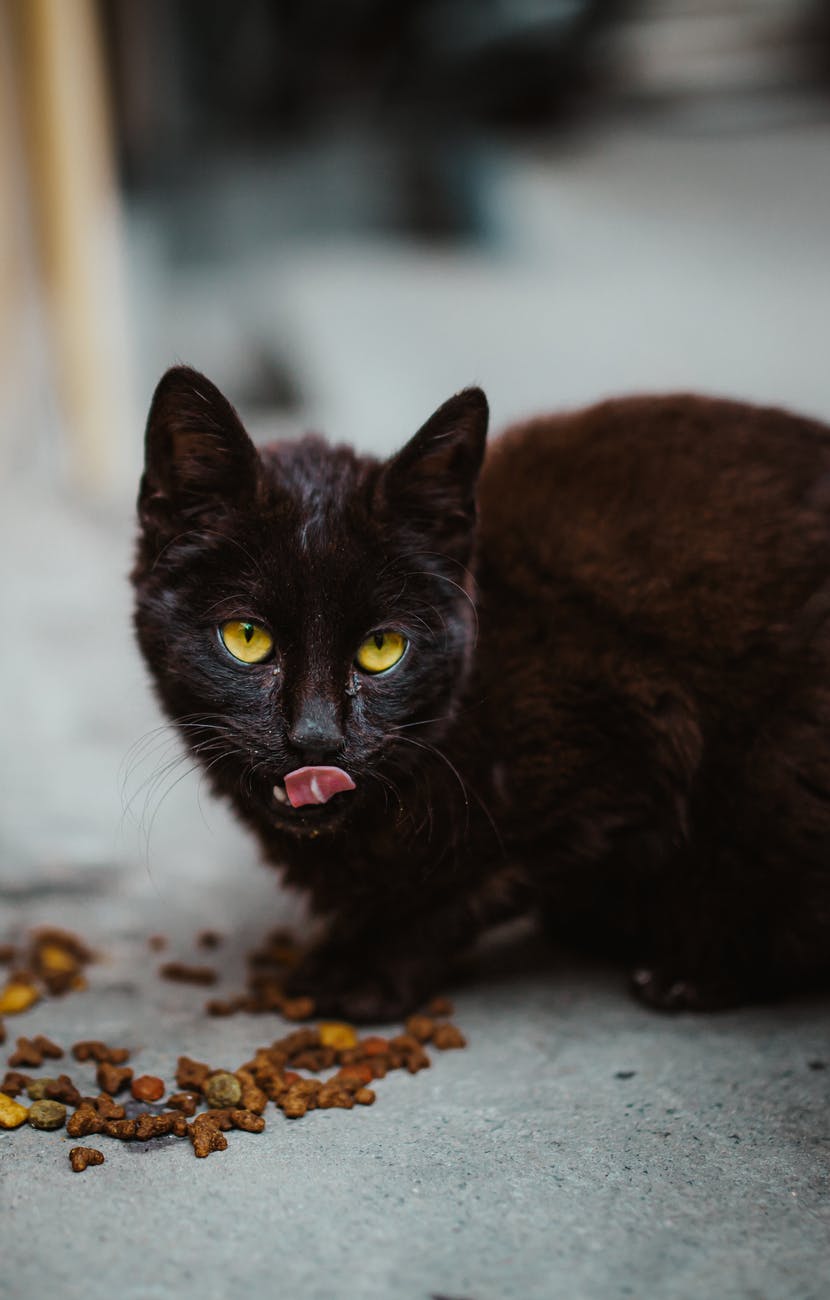
Are roasted or hulled sesame seeds better for Cats than raw ones?
There is a lot of debate on whether roasted or hulled sesame seeds are better for cats than raw ones. Some people say that the nutrients in raw seeds are destroyed when they are roasted, while others maintain that the roasting process helps to denature some of the antinutrients in the seed.
No matter which side you’re on, it’s important to remember that all sesame seeds contain toxins that can harm your cat. Make sure to roast them plain without adding anything else, including salt or spices.
Wondering what human food is safe for your cat? Check out this feeding guide for your parent.
Do all brands of commercially available cat foods contain some form of sesame oil in them?
It is a common misconception that all brands of commercially available cat foods contain some form of sesame oil in them. The truth is that not all brands include this ingredient.
However, there are a number of brands that do offer this nutritional supplement in their products.
When it comes to choosing a food for your cat, you have a variety of flavors to choose from. Check out different cat foods on amazon.
Roasted sesame seeds are the best way to incorporate sesame oil into your cat’s diet as they reduce antinutrients in the seed.
You only need to offer the oil to your cat in moderation; too much can be harmful.
The oil can help relieve indigestion and rejuvenate a cat’s coat but is only safe for cats in small amounts when added to their diet.
Sesame sticks are also an option; just make sure that the stick is not formulated with toxic ingredients before feeding it to your pet!
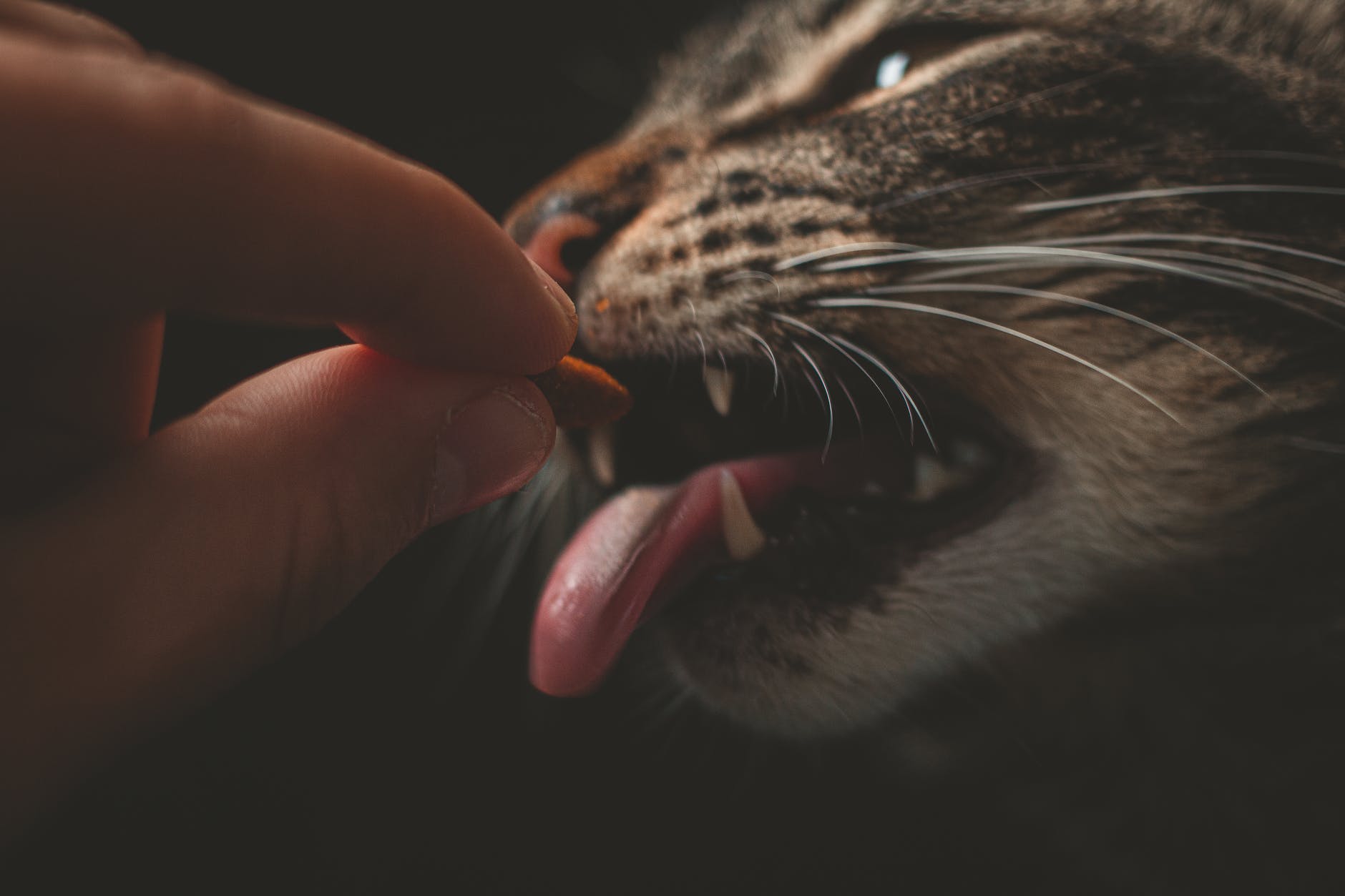
How can I introduce sesame seeds into my cat’s diet safely and gradually?”
If you’re looking to add some sesame seeds into your cat’s diet, the best way to do it is by roasting them.
This will help reduce the effects of any antinutrients they may contain and make them easier for your cat to digest.
You can either roast them yourself or buy pre-roasted sesame seeds from a store.
Once they’re roasted, you can either blend them in with their regular food or boil them before feeding them to your cat.
Be sure not to add any salt, sugar, or other ingredients your cat doesn’t like – just the roasted sesame seeds themselves.
Sesame seeds offer some great health benefits for cats and should be enjoyed occasionally as part of a healthy diet.
Just be sure not to overdo it and give them too many at once, as this could lead to sickness.
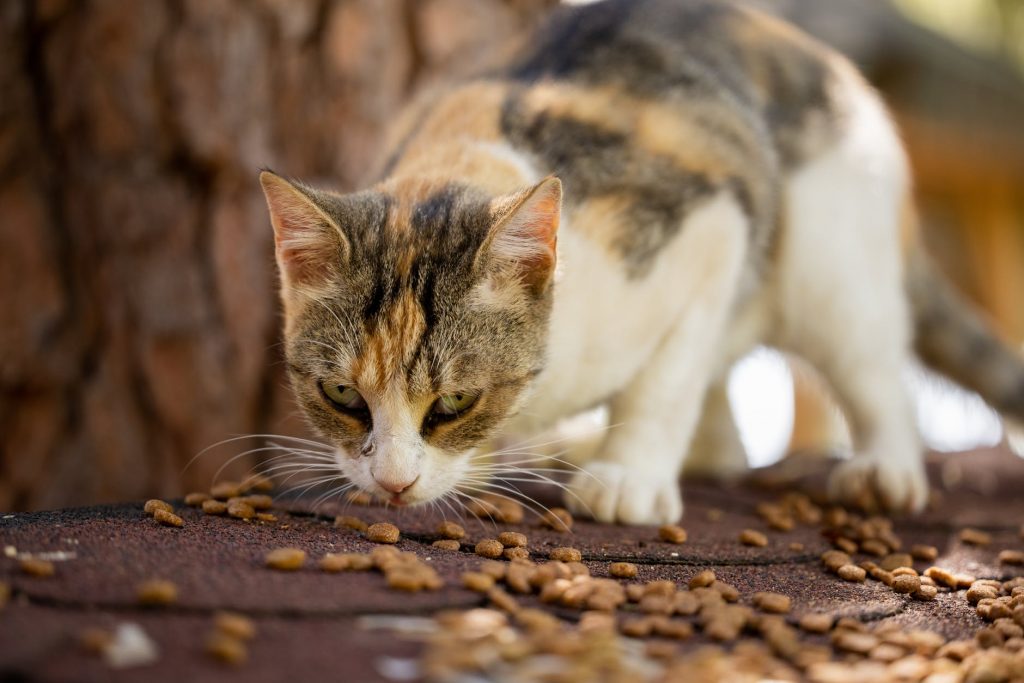
Which Cats Should Not Eat Sesame Seeds?
There are a few cats that should avoid eating sesame seeds. If your cat is pregnant, you should limit or avoid sesame seeds completely.
Sesame seeds can be a health concern for cats with sensitive stomachs and illnesses like pancreatitis.
If your cat has an illness like pancreatitis, she should avoid eating these seeds since they may cause vomiting or diarrhea as a result.
It’s best to avoid giving sesame seeds to a cat if the cat is under 6 months old or is older than 6 years.
This is because they won’t be able to digest it correctly and there may be health dangers involved.


